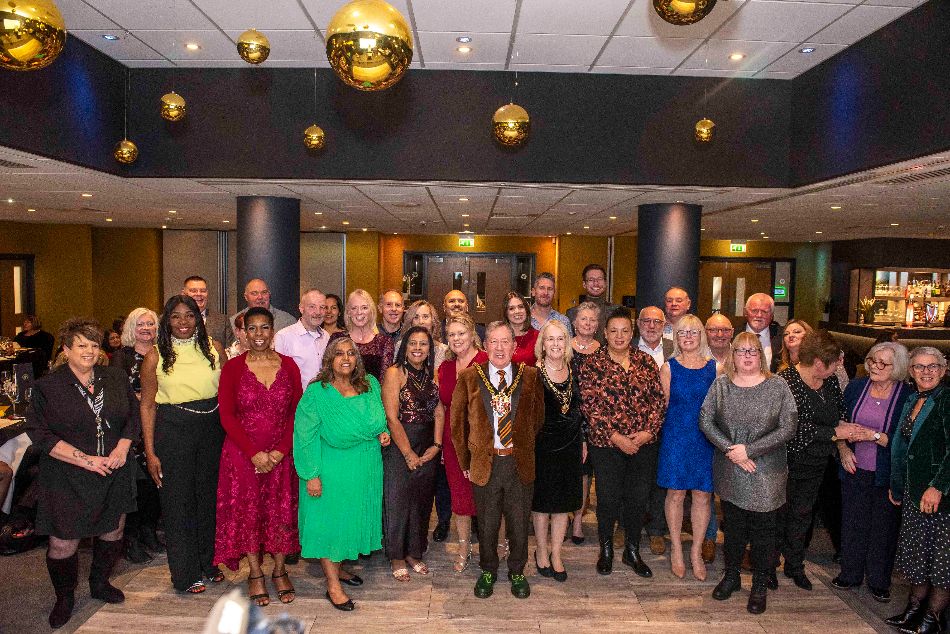Students studying Games Design and Development at the National Film and Television School are to showcase their games in the Rezzed area at EGX 2016, stand RZ7:1-4, and RZ8:5-8. The games on show range from a cutting-edge VR experience that questions ideas on gender identity to an iPad game exploring a relationship between a roboticist and the android she has created.
The vision behind the MA is to create the next generation of leading games innovators whilst broadening the audience for games by putting innovation and emotional engagement at the heart of games design. The course seeks to expand the possibilities of the medium by developing new ideas in both narrative and gameplay, attracting students from a wide range of backgrounds which have thus far included theatre design, physics, philosophy, fine art and political science to name but a few. There is even a scholarship provided by Wellcome for post-doctoral -level biomedical scientists. The gender balance for the course also outperforms the norm with women regularly taking up almost half of the places allocated.
The students showing off their games at EGX are in the second year of their MA and include Claudio Pollina, Laura Dodds, Blaise Imiolczyk, Jameela Khan, John Lau, Manos Agianniotakis and Naomi Kotler.
Here’s a snapshot of their ideas:
‘Night Bizarre’ (PC) by Laura Dodds puts the player into the position of Srey, a novice fortune teller learning her trade in a strange, bustling, Cambodian night market. Strive to thrive as you wield your tarot cards and predict the future of locals and tourists who visit your stall. Srey has to prove that she can make a success of her stall facing dangerous criminals, family disputes and torrential tropical storms over the course of five days. Will you use the tools of the trade to learn the art of deception or will you use Srey’s ‘gift’ to establish a reputation for yourself as a talented fortune teller?
‘Polyphonia’ (PC – HTC Vive) by Blaise Imiolczyk is a psychedelic hands-on virtual reality experience utilising motion controllers. It is a meditative exploration into the manipulation of environment and sound that gives the player the chance to experience the evolutionary story of a universe through several stages in which they can grab the surrounding objects and manipulate them which changes the sound within. Drawing its inspiration from science and space, the experience follows the evolution of a universe from its birth with the big bang right through to its death.
‘Aaliyah’ (PC) by Jameela Khan is a modern day British "Western" about a young woman who arrives in a small town to avenge the death of her friend. Through point-and-click gameplay, the player assumes the role of protagonist, Aaliyah, who is haunted by the memories of her last conversation with her friend, Eliza. Retracing Eliza's steps in the supermarket she used to work in, Aaliyah takes up work as a lowly paid stock controller. The player joins Aaliyah on her first day at work as she tries to discover what happened to Eliza and learns more about the motives for her death. 'Aaliyah' explores female friendship, gender and identity and is the first British game to feature a lead character of South Asian origin.
‘Uncanny Valerie’ (iPad) by John Lau is set in the near future, in the vein of Black Mirror, Ex Machina and Her. The player takes control of Karis, who has lost her job as a robotics engineer and who has been left by her long-term girlfriend Valerie. She has to pack up her belongings in the house they share and move on in the only way she knows how – by programming Valerie’s consciousness into an android. As she tries to recreate her lover, Karis realises the power she holds over the robot can be used to iron out Valerie's flaws, but is left wondering whether the result of her experiments is what she wants at all. Told through a combination of spatial puzzles, cut scenes and point-and-click tasks, ‘Uncanny Valerie’ is a story about a woman trying to let go of and hold onto a failed relationship.'
‘Melancholia’ (iPad) by Claudio Pollina is an isometric puzzle game. The puzzles are created to trick your visual and audio perceptions with optical and audio illusions. As Frances, the player must manipulate the ambience and sounds of two worlds - the house he shared with the love of his life and his own fractured memories - to piece together the mystery of why he lost Fanny and his will to play violin.
‘The Circle’ (PC – Oculus Rift) by Manos Agianniotakis is an interactive VR experience about a woman dealing with PTSD. The story blurs the line between reality and fiction, dreaming and living, forcing the play into the shoes of a flawed but relatable main character. It explores themes of gender, identity, obsession and trauma and takes inspiration from the real world phenomenon of the Toynbee Tiles.
‘Into the Black’ (PC – Oculus Rift) by Naomi Kotler is an immersive, third person VR adventure about teamwork, instinct and survival set in the Yellowstone National Park wildfires of 1988. The player assumes the role of a spirit guide sent to help a red fox and grizzly bear, who have been thrown together during the chaos of the fire and need your guidance to help them escape. Only by working together will they survive. Along the way, they will be tested and face predators including man, who is full of cruelty and bad intention. If you and your companions survive, you will need to rely on each other and leave everything behind as you journey ‘into the black’.
Two games designed and developed by NFTS graduates will also be on show. These include Electric Lullaby and P.E.T, both of which have secured funding from Wellcome:
‘Electric Lullaby’ (developed by Jon Hatton and Paul Dillon of Cupboard Games): During the game, the player explores a dreamlike desert where they have to stop playing when their character grows tired. Turning the game off (“going to sleep”) awakens the player’s alter ego—a clumsy monster that roams the mysterious land while the player is away. The player must learn to co-operate with their subconscious in order to make progress and uncover the secrets of the land they find themselves in.
‘P.E.T.’ (Ellie Silkstone/ Jenna Jovi) is a new evolution of the classic virtual pet app exploring the intersection of technology and pet ownership by blurring your physical world with that of your new digital pet. In the game, you are challenged to create and look after a digital pet as it grows and ages, whilst Omni Science - the fictional research company behind the app - casts an ever-watchful eye on proceedings.
















